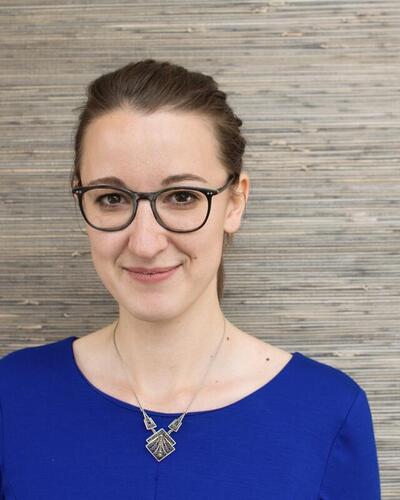- E-mailfriederike.frob@uib.no
- Visitor AddressAllégaten 705007 Bergen
- Postal AddressPostboks 78035020 Bergen
My research focuses on ocean carbon cycle processes, on local and global scales, across different timescales, through the application of different statistical tools using both observational data and Earth System Models. Currently, I assess abrupt changes and tipping points in ocean biogeochemistry in order to evaluate the impact of climate change hazards on marine ecosystems.
- (2024). Simulated Abrupt Shifts in Aerobic Habitats of Marine Species in the Past, Present, and Future. Earth's Future.
- (2023). The New Max Planck Institute Grand Ensemble With CMIP6 Forcing and High-Frequency Model Output. Journal of Advances in Modeling Earth Systems.
- (2022). Acidification of the Nordic Seas. Biogeosciences. 979-1012.
- (2021). The Sensitivity of the Marine Carbonate System to Regional Ocean Alkalinity Enhancement. Frontiers in Climate.
- (2020). Detectability of Artificial Ocean Alkalinization and Stratospheric Aerosol Injection in MPI-ESM. Earth's Future.
- (2019). Wintertime fCO2 variability in the subpolar North Atlantic since 2004 . Geophysical Research Letters. 1580-1590.
- (2018). Inorganic Carbon and Water Masses in the Irminger Sea since 1991. Biogeosciences. 51-72.
- (2016). Ocean acidification in the subpolar North Atlantic: Rates and mechanisms controlling pH changes. Biogeosciences. 3701-3715.
- (2016). Irminger Sea deep convection injects oxygen and anthropogenic carbon to the ocean interior. Nature Communications.
- (2016). Climate change signals of CMIP5 general circulation models over the Alps – impact of model selection. International Journal of Climatology. 3088-3104.
- (2022). Trender i havforsuring og antropogent karbon i de nordiske hav, Nordsjøen og Skagerrak. .
- (2023). Workshop on ocean tipping points and extreme events.
- (2022). Marine tipping points.
- (2021). Low and overshoot emission scenarios – from a high to a low carbon society (LOES).
- (2018). ICOS data used for Ocean acidification research.
- (2022). Detecting ecosystem-relevant crossings of thresholds.
- (2017). The Anthropocene in the marine carbon isotope record, δ13C in the Nordic Seas.
- (2017). Surface ocean pCO2 measurements within ICOS Norway and the example of M/V Nuka Arctica.
- (2017). Nuka Arctica: North Atlantic Observatory.
- (2017). Climate controlled mechanisms of subpolar North Atlantic carbon uptake.
- (2023). Potential changes of finfish thermal habitat under negative emissions.
- (2022). Detection of abrupt shifts in the metabolic index in NorESM2.
- (2017). Impact of North Atlantic freshening on sea surface fCO2.
- (2022). Marine tipping points: presentation from the H2020 COMFORT project (820989) in Norwegian and English.
More information in national current research information system (CRIStin)
TipESM: Exploring Tipping Points and their Impacts using Earth System Models
OceanICU: Understanding Ocean Carbon (Horizon Europe)
COMFORT: Our common future ocean in the Earth system - Quantifying coupled cycles of carbon, oxygen, and nutrients for determining and achieving safe operating spaces with respect to tipping points (Horizon 2020)
